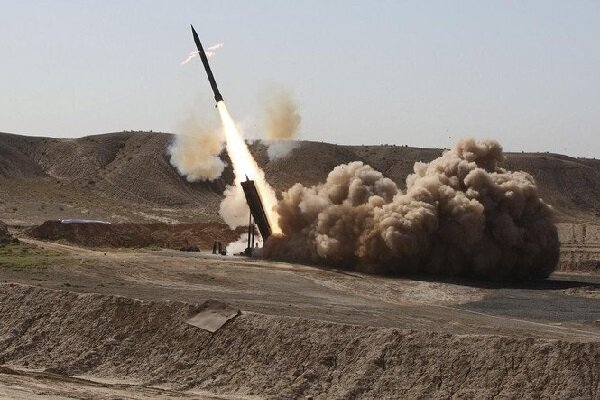Iran says it will not negotiate missile work, wants to export more oil

TEHRAN - Iran wants to export a minimum of 700,000 barrels per day of its oil and ideally up to 1.5 million bpd if the West wants to negotiate with Tehran to save a 2015 nuclear deal, two Iranian officials and one diplomat told Reuters on Sunday.
“As a goodwill gesture and a step toward creating space for negotiations, we have responded to France’s proposal. We want to export 700,000 bpd of oil and get paid in cash ... and that is just for a start. It should reach to 1.5 million bpd,” said a senior Iranian official, who asked not to be named.
A second official said “Iran’s ballistic missile program cannot and will not be negotiated. We have underlined it clearly and openly.”
The officials did not elaborate on the reference to a French proposal. French officials were not immediately available for comment.
An Iranian diplomat said Iran had also ruled out any negotiations of its “right to enrich uranium, its home-made nuclear fuel cycle ... and in return we will be fully committed to the 2015 nuclear pact.”
Industry sources told Reuters that Iranian oil exports dropped in July to as low as 100,000 bpd due to sanctions imposed on the country by the United States since President Donald Trump exited the 2015 pact last year.
The interviews by Reuters were published on the same day as Iran’s Foreign Minister Mohammad Javad Zarif paid a surprise visit to Biarritz, France, where the G7 leaders were meeting.
The visit came only hours after sources said French President Immanuel Macron had been given mission by his G7 counterparts to engage in talks with Iran.
Iranian Foreign Ministry spokesman Abbas Mousavi said the chief Iranian diplomat was going to France to “continue talks over recent initiatives between the presidents of Iran and France” to save the 2015 nuclear deal, officially known as the JCPOA.
Mousavi told the national TV that Zarif visited Biarritz for talks on the details of the proposals by France and Iran to save the JCPOA and defuse tension in the Persian Gulf region.
However, there was no talks of the details.
According to Reuters, a French presidency official said Zarif was in talks with his French counterpart on the sidelines of the G7 leaders' summit to discuss what conditions would de-escalate tensions between Washington and Tehran.
"Zarif came to Paris on Friday with Iranian propositions which obviously must be refined," the French official said.
"Yesterday (Saturday) there was a substantial discussion between G7 leaders and it is important to now update Zarif in order to keep closing the gap...on the conditions with which we could de-escalate the tensions and create breathing space for negotiations."
No discussions are planned between Iranian and American officials at this stage, the official said, adding that Zarif's visit had been finalized on Saturday evening.
Macron said on Sunday that G7 leaders had agreed to a joint action on Iran with the aim of defusing tensions and opening a new negotiation with Tehran.
“We agreed on what we wanted to say jointly on Iran,” Reuters quoted Macron as saying. “There is a message from the G7 on our objectives and the fact that we share them is important, which avoids divisions that in the end weaken everybody.”
“Everyone wants to avoid a conflict, Donald Trump was extremely clear on that point.”
It came after a French official said the French president had shared details of the plan to ease tensions with Iran during his working lunch with President Donald Trump at the G-7 summit.
Macron has been lately conducting a series of efforts to engage in talks with Iran. In early August he held a phone conversation with President Hassan Rouhani of Iran.
During the phone call, Rouhani said oil export and banking transactions are the “most important economic rights of Iran”.
Under the 2015 nuclear deal, officially called the JCPOA, Iran agreed to put limits on its nuclear activities in exchange for termination of economic and financial sanctions.
Rouhani also insisted on the need to explore “expert and fair solutions” to salvage the JCPOA from collapsing.
European partners to the JCPOA (France, Germany and Britain) have unveiled a mechanism for trade with Iran, known as INSTEX, but it falls far short of Tehran’s expectations.
Iran has insisted that INSTEX should include oil trade.
The Trump administration has illegally introduced a total ban on Iran’s oil exports in line with its “maximum pressure” policy against Tehran.
SP/
Leave a Comment